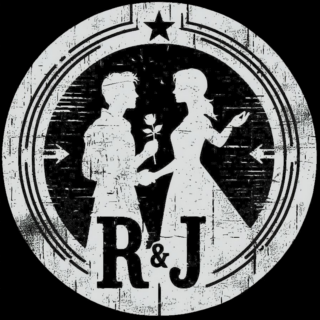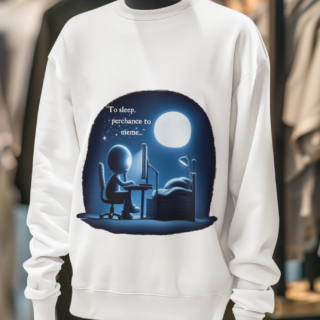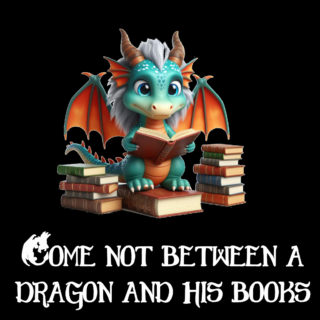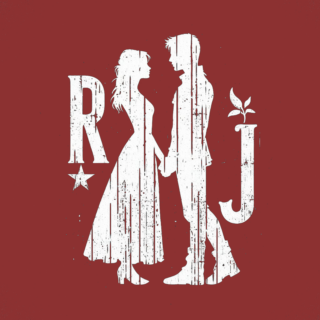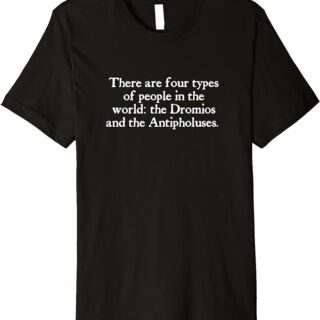Great article by Paul Edmondson over at Blogging Shakespeare with a simple premise : get a group of people together to talk about just one sonnet, in this case sonnet 29, for an hour. What happens? Can you still learn something new every time? To steal from the closing sentiment of the article, can you exhaust it? Or will it merely exhaust you (temporarily)? We talk about sonnet 29 frequently here. Once Rufus Wainwright put it to music I found it easier to memorize, which in turn caused me to pay more attention to the emotional power behind the words. I’ve since added it to my wedding book for its potential in that arena as well. I started to do my own analysis here, but that’s not really fair to the original post. Go check it out.
Which Is The Easiest Play?
There’s many reasons why people can claim that Shakespeare is hard to understand. First, there’s vocabulary. It’s not really as bad as people make it out to be, but some plays certainly make heavier use of archaic/obsolete words than others. Expressions that no longer have context, on the other hand, are a big problem. Jokes that would have gone over huge with Shakespeare’s crowd that no longer make sense without a little training. That’s a problem. And then there’s all the offstage stuff that happens. When somebody walks on stage and explains about a war that’s going on, dropping names left and right about who did what to do, it’s easy for a modern user to get lost because they didn’t see it. They don’t know who those people are. With that in mind I ask, what’s the easiest play? You can define it however you like (given the rough framework I provided), but I’m not just looking for most popular. You might think Lear is easy, from certain angles. It’s deep, absolutely. But hard to follow? I don’t know about that. I’m wondering which of the plays have all the action taking place on stage (so there’s no need to exposition about what we can’t see), while relying on relatively simple vocabulary that a modern audience could easily follow. Motivation : Whenever I make my wife come see Shakespeare with me, and she brings a friend along for company, I typically explain the plot of the show before we go so they’re not lost. At intermission I refresh the details of the story now that they’ve seen some characters, and answer any questions. Inevitably at the end they’ll say, “I did understand it – but thanks to what you told us in the beginning. I’m not sure I would have followed it without that.” I’m wondering what the best candidates are for a play that they would be most likely to follow, without me having to walk them through it. I think that creates a barrier to truly feeling like you’re enjoying the work, if you need a middle man to translate for you.
He’s Here! Branagh’s Hamlet, Blu-ray Edition
Ok, how many people knew who I was talking about when I teased this one a few days ago?  I’m happy and grateful to report that Warner Brothers contacted me and asked if I could review the new release of Kenneth Branagh’s Hamlet, new on Blu-ray DVD (official release date Tuesday August 17, 2010). “I don’t have a Blu-ray player,” I responded. “Can I get some for giveaway?” Sure enough I’ve now got two, count ‘em, *2* brandy new, hot-off-the-presses, before-he-directed-Thor, Kenneth Branagh Hamlet’s. It’s not even like I can keep them for myself, because I’m not kidding, I don’t have a player for these bad boys! I don’t expect that any regular readers will need a synopsis of this one, but they kinda sorta requested that I make this a mandatory part of the post. So:
I’m happy and grateful to report that Warner Brothers contacted me and asked if I could review the new release of Kenneth Branagh’s Hamlet, new on Blu-ray DVD (official release date Tuesday August 17, 2010). “I don’t have a Blu-ray player,” I responded. “Can I get some for giveaway?” Sure enough I’ve now got two, count ‘em, *2* brandy new, hot-off-the-presses, before-he-directed-Thor, Kenneth Branagh Hamlet’s. It’s not even like I can keep them for myself, because I’m not kidding, I don’t have a player for these bad boys! I don’t expect that any regular readers will need a synopsis of this one, but they kinda sorta requested that I make this a mandatory part of the post. So:
“Hamlet has the kind of power, energy and excitement that movies can truly exploit,” award-winning actor/director Kenneth Branagh says. In this first-ever full-text film of William Shakespeare’s greatest work, the power surges through every scene. The timeless tale of murder, corruptions and revenge is reset in an opulent 19th-century world, using sprawling Blenheim Palace as Elsinore and staging much of the action in shimmering mirrored and gold-filled interiors. The energy is electrifying, due to a luminous cast. The excitement of the Bard’s words and an adventurous filmmaking style lift the story from its often shadowy ambience to fully-lit pageantry and rage.
Ok, so, on to the good stuff. How can you be one of the lucky ones to “Own it on Blu-ray”? Starting now (Sunday, August 15); 1) Follow me on Twitter if you haven’t already. I need to be able to message you back if you win. 2) Send the following message via Twitter: Free DVD Giveaway: Enter to Win Kenneth Branagh’s Hamlet, New on Blu-ray! http://bit.ly/cbyNil @ShakespeareGeek #BlurayHamlet 3) Two winners will be chosen by midnight (Eastern time) on Tuesday, August 17 (to coincide with the official release date). This is a quick one, people, so don’t delay! 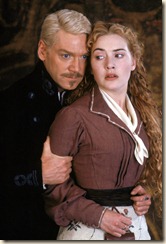 4) Winners must be in the continental United States. Sorry, but these are sitting on my desk and I’ve got to pay the shipping out of my pocket. I couldn’t even really tell you what region these are anyway, and I know the international folks would need to know that. 5) Your friendly neighborhood Shakespeare Geek reserves the right, if necessary, to extend or alter the rules if I’ve somehow written up a condition that is either a) impossible to fulfill or b) results in ambiguity that would wreck the integrity of the contest. Get started! Seriously, somebody’s got to take these off my hand and then convince me to get a Blu-ray player! I hear in high-def you can really see the melancholy in all it’s glorious detail 😉 Of course, for those that want to skip the gambling and just add to their collection, you can own it on Blu-ray anytime (well, after Tuesday) you like!
4) Winners must be in the continental United States. Sorry, but these are sitting on my desk and I’ve got to pay the shipping out of my pocket. I couldn’t even really tell you what region these are anyway, and I know the international folks would need to know that. 5) Your friendly neighborhood Shakespeare Geek reserves the right, if necessary, to extend or alter the rules if I’ve somehow written up a condition that is either a) impossible to fulfill or b) results in ambiguity that would wreck the integrity of the contest. Get started! Seriously, somebody’s got to take these off my hand and then convince me to get a Blu-ray player! I hear in high-def you can really see the melancholy in all it’s glorious detail 😉 Of course, for those that want to skip the gambling and just add to their collection, you can own it on Blu-ray anytime (well, after Tuesday) you like!
What, Midsummer Again?
We ended up with something of a quality theme this week, so I’ve got one more to round it out. Could you watch Hamlet 30 times? Or any play? I expect you probably could. Because it’s different every time, and we’re all fascinated by what each new production will bring to the table. Say that a really awesome cable network is running a different version of Midsummer, every night for a week (or more). If you’re like me, you try to catch them all (assuming, of course, that you haven’t seen them all already to the point where you’re bored. Humor me.) Now what if they’re showing the exact same version every day for a week? How many times do you watch? Thought exercises like this are tricky in the days of “buy the DVD”, but hopefully you get my point. Shakespeare’s words are frozen in time, but performance is not. Thus we have an infinite variety to go enjoy. But what if you took a single performance and froze it in time? How would it stand up? This is not a Shakespeare specific question, of course. You may have The Godfather, or Lord of the Rings, on DVD sitting in your collection right now. And we’ll all agree those are very good movies. But when’s the last time you watched them? What made you stop? When did you decide you’d had enough?
I love thee, I love but thee With a love that shall not die Till the sun grows cold And the stars grow old.
I love thee, I love but thee
With a love that shall not die
Till the sun grows cold
And the stars grow old.

This quote is perhaps my favorite “not by Shakespeare” of them all. And by that, I mean I very much wish it were Shakespeare because I love the quote. I love the simplicity of “I love but thee.” I texted it to my wife once and left her speechless. Then, being the geek I am, I had to explain that it’s not Shakespeare, lest she think it was.
The quote comes from Bayard Taylor’s Bedouin Song, some 200 years after Shakespeare:
 ROM the Desert I come to thee
ROM the Desert I come to thee- On a stallion shod with fire;
- And the winds are left behind
- In the speed of my desire.
- Under thy window I stand,
- And the midnight hears my cry:
- I love thee, I love but thee,
- With a love that shall not die
- Till the sun grows cold,
- And the stars are old,
- And the leaves of the Judgment Book Unfold!
UPDATED! After I posted this, Professor Stanley Wells (of The Shakespeare Birthplace Trust) suggested that perhaps a particular quote may have been at least in part inspired by Shakespeare. Can you guess which play and which quote?
How about Hamlet? In Act 2, Scene 2, Hamlet writes a love letter to Ophelia, expressing the depth of his love. He suggests that while one might doubt fundamental truths like the nature of stars or celestial movement, his passion remains absolute and unquestionable. The quote symbolizes unwavering devotion and the intensity of Hamlet’s emotions during a period of personal turmoil and political intrigue.
“Doubt thou the stars are fire, Doubt that the sun doth move, doubt truth to be a liar, but never doubt I love …”
Today, the quote remains poetically profound, resonating with those seeking to express profound, unconditional love.




